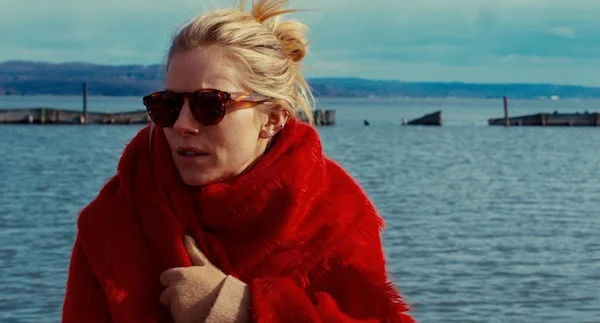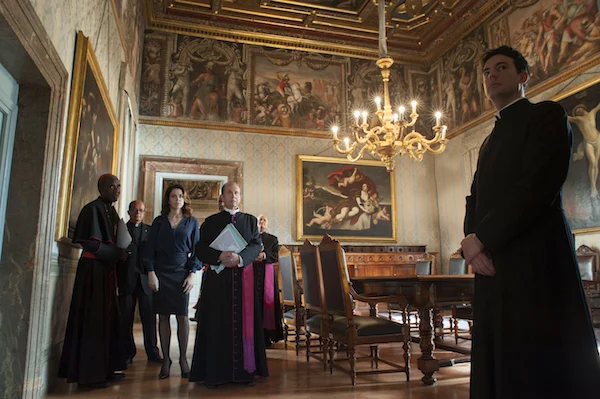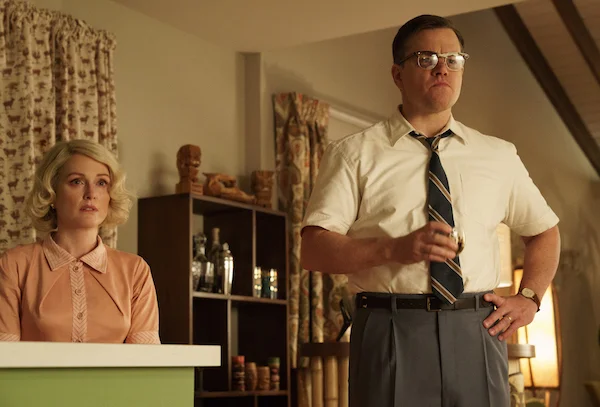It is a thin line that filmmakers walk every time they make a film, that invisible border which separates cinema the audience wants to watch from the work they really wish to make. Sometimes, as in the latest film from American auteur James Toback premiering at the Venice Film Festival, they balance perfectly on that tightrope and create a watchable masterpiece like ‘The Private Life of a Modern Woman’ which is also critically acclaimed and emanates important subliminal messages for days after viewing it. Other times, for example with George Clooney’s ‘Suburbicon’ well, they miss, tumbling onto the safety net of their celebrity-dom which allows fans of their work to oh and ah, regardless of how valid their product really is.
‘Suburra’ on Netflix
Throughout my viewing of the first two episodes of Netflix latest series, also their first collaboration with production company Cattleya as well as Rai Fiction to create original Italian content, I kept thinking how come the creators, actors and producers of this groundbreaking new show aren’t afraid. Afraid of angering the authorities and the underworld of Italy’s capital, which includes the Church, the State and all kinds of mafia. Trust me, ‘Suburra’ is one equal opportunity, piss off everyone who has their hands in the pot of corruption kind of serial.
PHOTO BY EMANUELA SCARPA/NETFLIX
And yet, here they were in Venice at a press conference, as tranquil as can be expected when a group of talents of this calibre come together, the likes of actor turned director Michele Placido, actors Alessandro Borghi, Claudia Gerini and Francesco Acquaroli, as well as series writer Barbara Petronio, producer Riccardo Tozzi and even ‘Suburra’ book authors Giancarlo De Cataldo and Carlo Bonini.
‘Suburra’ the series takes place several years before the 2015 film by the same title started and explores the twenty days of turmoil between the time the Mayor of Rome resigns and when that resignation takes effect. The wheeling and dealings involve the Vatican, the Gypsy mafia and miscellaneous drug dealers and power hungry seedy men sprinkled around the Eternal City and its suburbs. Head writer Petronio called this greed a “centuries’ old hunger for conquest that is particular to Rome .”
Director Placido referred to a chance meeting with an older woman on the street who approached him just before the press conference to tell him the series is “very violent and very beautiful!” Definitions he called both “very important for this line of work.” Lead actress Gerini said she “fought to have this role because it’s very different from my past roles,” and pointed to the fact that her Sara Monaschi is “a woman in the Vatican which is a rare thing.”
One of writers of the novel ‘Suburra’ jumped in to add that this is a “Rome that has some reality aspects but it’s mainly about fiction. All the stories are part fiction, they have elements of reality but also storytelling. True stories are transformed, or we would have called it ‘An Essay on the Corruption of Rome’ not Suburra.” And perhaps that explains the calm and self confidence of everyone involved... I still shudder though at the eerie similarities to our modern-day Rome and all its corruption and scandals.
James Toback’s ‘The Private Life of a Modern Woman’
As the opening sequence of ‘The Private Life of a Modern Woman’ unfolds, split screen images of Hieronymous Bosch’s painting ‘The Garden of Earthly Delights’ are alternated with what may or may not be Sienna Miller’s character killing her ex-boyfriend. Is she writing this and as all good writers often do, imagining the scene so clearly that it seems reality? Or did Vera really shoot the jerk in self defense when he threatened her with a gun in her NYC apartment, then stuff his body into a large silver trunk and dump him upstate NY in the river?
Hitchcockian as Toback’s film is in plot and references, personally what hit me straight to the heart are the dynamics of Vera’s relationships with the men around her. As a currently out of work Hollywood actress, she is surrounded by men who bring her grief, who taunt her with their maleness, to submit her to her womanly-ness. This cast of characters includes her ex, well we know what happens to him of course, the current beau who whines about her lack of interest in his thesis on Dostoyevsky and Dickens, Toback himself who comes around to analyze her — at one point she chimes back “yes, I am depressed but I’m not boxable at the moment” — and a smug detective played by Alec Baldwin who is investigating her ex’s disappearance. The only relief to this testosterone, self-congratulatory fest comes from two older men, one is her 85-year old grandfather suffering from Alzheimer, played by Charles Grodin with whom she shares one of the most touching moments in the film, the other a gentleman friend granddad called to come and check in on Vera — played by, get this, billionaire Carl Icahn. Oh and two African American men on the streets of the Bowery who help Vera in her time of need.
For a woman who grew up in NYC and ran her own successful business there, this kind of subtle abuse hits a deep chord. No man before Toback, has ever portrayed so well the constant flow of smugness and the misogynistic leitmotif that accompanies the lives of yes, modern women who dare to strive for success, particularly in America. ‘The Private Life of a Modern Woman’ is the work of genius, a film most important for women to watch — and perhaps, also for the men who truly love them, not just tolerate them.
George Clooney’s ‘Suburbicon’
The headline of Xan Brooks’s review of the film in ‘The Guardian’ sums ‘Suburbicon’ up best: “George Clooney’s picket-fence creepfest grows up to be Fargo’s idiot child.” Can’t get any more succinct than that.
COURTESY OF PARAMOUNT PICTURES
Julianne Moore and Matt Damon in George Clooney’s ‘Suburbicon’
When we are first introduced to Matt Damon and Julianne Moore, the two of them are playing a total of three characters: Married with child couple Rose and Gardner Lodge and Rose’s sister Maggie who live in the idyllic suburban community of Suburbicon in 1959 America. Then, an African American family moves in next door and the neighbors are appalled, because this is pre-Selma America after all and “they” aren’t welcomed. There are mild references to walls (fences) being built and angry mobs stalk the new neighbors but by then the film’s main plot has unfolded and we are too busy trying to figure out why Rose was killed by criminals who break into’s the Lodge’s home and exactly where Clooney is going with this Coen brothers reject of a script. Yes, it is that, written in the 80s by them, shelved and now reworked by Clooney who makes a further mess of it.
The first half seemed like it could go a Hitchcock route, which in my book is always welcomed. Then, in the second half Clooney wants to give the people what they want and that seems to be blood and violence — the audience laughed and rejoiced during the metal poker scene which I found revolting — hence losing the film altogether.
But this is the way of the world, violence, right... Or should it be? After such beauties as ‘The Ides of March’ and ‘The Monuments Men’ needless to say, I was left deeply disappointed.


